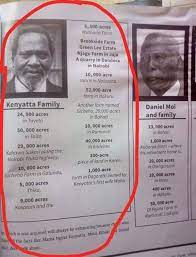Mutonyi wa Bukelembe: The Rejected War Prophet
“.....I can see red strangers coming in granary-like objects, clearing the way from East down to the West, lining up metal bars like a long snake...” (Mutonyi wa Bukelembe)
It is 1820 and Babukusu have no clue of coming of the Whiteman. In the West of present day Malakisi, a young child is born. He is given the name Wasilwa Walubengo; born of Nakhumwa (mother) and Bukelembe (father from Bayitu clan). Other erroneous accounts say that his mother was Nabukelembe and his father Nataha, which is incorrect. The writer belongs to Bayitu Clan and takes pride in giving you a detailed narration of kinsman.
Walubengo is no normal boy; filled with strange dreams and intuition (khubonela mumechi - second sight). At the age of 18, in 1838, he went under the knife under the Bakinyikewii sya Mayeya age set. By then, people used to khukhwillaa (praise) themselves against the name of their mother. A woman cheerful, energetic and kindhearted was accorded much respect in the community as Omukhasi we Kumusumbi (Woman of the girdle/ traditional waist-belt). A son had a special attachment to his mother. Promising sons such as Maina wa Nalukale, Mukite wa Nameme, Wachiye wa Naumbwa took the second names being their mothers’. How sad the practice has declined today!
Shortly afterward, Walubengo makes a startling revelation. That a war is coming between Babukusu and Barwa Bakoyonjo (Kalenjin raiders), it will be fought in Mutonyi (Malakisi). If the warriors followed his advice, the community will suffer less causality and even he predicted how many animals will be captured! It came to pass and Babukusu won greatly and chanted the name Mutonyi became a nickname to the seer. Mutonyi wa Bukelembe become a consultant in time of war (as compared to Biblical Samuel – see 1 Samuel 4:1-6: 7:3-10).
In fact, 20th Century researchers George Were (Politics, Religion and Nationalism in Western Kenya- 1962), Prof Bethwell Ogot (Politics and Nationalism in Colonial Kenya -1972) and lately F.E Makila (An Outline of Babukusu of Western Kenya -1976), agree that Mutonyi wa Bukelembe was the most accomplished seer in Bukusu history but ignored or belittled.
Mutonyi, however, increasingly became disturbed by more strange images in his dreams and premonitions. Legend has it that he could no longer bear it and called ekokwa (village brewing party) to explain to the community his disturbing dreams.
“My Countrymen and women, let’s not live blindly. Let’s gather our friends and enemies alike. A different kind of enemy approaches, I can see him with my very eyes. I see a bull coming. I see strangers whose skins are as brown as eswa emuunda (brown termite) and their bodies smeared with kuloba kweluchi (red ochre). Their hair looks like busafwe bwe khafu (cow’s tail hair) with clothes as bubwoba bukochwe (white giant mushroom) and their spears kill from a distance (guns).”
“They well dominate us, we will work for them, till our land for them and even cook for them. They come with colored white articles (chingayu or sesame to mean European money) that will swallow our cattle. They however, might not stay forever.”
Legend has it that Mutonyi prophesied that the stranger`has power to make someone to speak at Ebukwe (sunrise) and another hear him at Mumbo (sunset). He was referring to modern telephone communication.
And then what was the response....?
People openly resented his prophecy (by spiting saliva). “Nothing good comes from the mouth of Mutonyi,” they said. “How can a circumcised and full grown man even cook for a fellow man? Bullshit.” They dismissed the prophet and some suggested he was excessively drunk or mentally unwell.
Rejected, Mutonyi went home with a heavy heart...
Before long, he called another gathering similar to the first one.
“I can see red strangers coming in granary-like objects (motor cars), clearing the way from Great Waters of the East (Indian Ocean) down to the Great Waters of the West (L. Victoria), and lining up metal bars like a long snake (railway). The red bull I mentioned (colonial power) will move amidst our herd but a black bull from Mt Masaaba (Elgon) will come to counter it (African’s struggle for independence).” By now only a few started to believe in the words of Mutonyi.
He finally called a gathering for a third time and gave his own premonition of death. He said he will not live to see the coming of the strangers as he will be killed by an arrow of Omurwa Omukwabi (Nandi) across River Njoya (R. Nzioa). But upon his death, he instructed the community to carry his body and bury in Bukusu land.
And it came to pass...
Only two days later, Mutonyi wa Bukelembe went to visit his relatives across R. Nzioa. The Barwa Bakwabi raiders attacked in the cover of darkness. Mutonyi joined the fight but unfortunately was struck an arrow through his mouth and died instantly as he had predicted.
It was 1890 when Mutonyi was felled; the people carried the body back and mourned his death for days.
As time went by, stories of British arrival in Wanga in early 1900s made the Bukusu community painfully contemplate on the words of Mutonyi wa Bukelembe and too late to put up unified Luhyia resistance as he had wished.
A story is good, until another one is told ...











